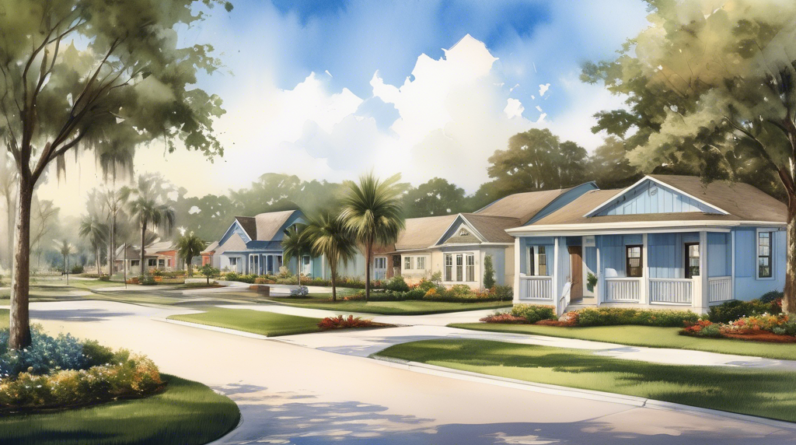Current Market Conditions
The Florida housing market has felt the impact of various economic stressors, leading to a noted slowdown. As of June 2024, home sales have decreased by 14% year-over-year, with only 32,836 homes being sold compared to 38,387 in the previous year. This market deceleration is accompanied by a modest increase in median sale prices, now hovering around $419,000, a mere 2.3% rise annually. With homes lingering on the market for an average of 57 days, the competitive edge seen in previous years has clearly diminished. Furthermore, there has been a significant 40.1% rise in housing inventory, offering buyers more options and further indicating a market cooling.
Inventory and Supply
The increase in housing inventory in Florida is a notable development, with approximately 198,000 homes available, equating to a 5-month supply. This shift showcases a more balanced market dynamic, reflected by a growth in new listings for single-family homes and condos by 10.7% and 13.8% respectively compared to last year. This influx in inventory poses a distinct advantage for potential buyers, who now have a wider selection to choose from.
Regional Variations
The housing market’s behavior is not uniform across Florida, with regional variations quite pronounced. Urban centers such as Miami and Orlando continue to exhibit strong demand; conversely, less-populated areas experience moderate activity. For example, in Naples, the market is decelerating with sales stabilizing and prices growing more consistently than before. By late 2023, Naples had a median sale price of approximately $815,000, yet sales volumes have decelerated, and average market days have increased.
Home Prices
Statewide, home prices in Florida continue to rise, albeit at a slower rate. Single-family home prices saw a slight uptick of 0.5%, whereas condo prices dipped by 1.3% in July 2024. In regions such as Naples, the growth rate of property prices has slowed, reflecting a broader trend of leveling price increases compared to previous years.
Mortgage Rates and Affordability
Though mortgage rates remain relatively low, fluctuating between 6.50% and 6.84%, enhancing homebuyer demand and purchasing power, affordability remains a concern. Rising interest rates compounded by increasing home insurance costs are placing additional financial strain on certain buyers, impacting overall market accessibility.
Future Predictions
Experts largely agree that while the Florida housing market is unlikely to crash in 2024, it will transition toward a more balanced outlook, with potential for price stability or minor corrections in select areas. The market’s upward trajectory is expected to slow, attributed to rising interest rates and associated economic factors. Inventory is predicted to continue expanding, offering further opportunities for buyers in an evolving marketplace.
Luxury Market
The luxury property segment within Florida remains vibrant, buoyed by high-end clientele from Latin America, Europe, and Asia. There is a particular demand for properties featuring smart home technology, natural access, and advanced security systems, underscoring the robust nature of this market segment.
Economic Factors
The general economic environment, influenced by rising interest rates, inflationary trends, and potential recession concerns, drives buyer behavior and overall market dynamics. These economic factors significantly impact the decision-making process for potential home buyers, shaping the market’s current and future state.
All in all, the Florida housing market is moving toward a more balanced state, characterized by increasing inventory, decelerated price growth, and diverse regional conditions. While challenges exist, particularly around affordability, opportunities remain for savvy buyers positioned to navigate this changing landscape.







